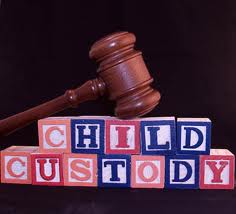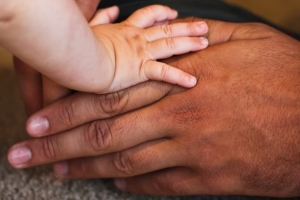 Investigations by the Florida Department of Children and Families begin with allegations that a child or vulnerable adult has been abandoned, neglected, or abused. It is the role of the Florida Department of Children and Families to take each allegation seriously and to ensure that claim is investigated to ensure the safety of all individuals involved. Being involved in an investigation is stressful and causes many to worry about losing legal rights to a child or a grandchild. This, in turn, leaves many to wonder if they should contact a Florida Family Law Attorney to protect their parental rights.
Investigations by the Florida Department of Children and Families begin with allegations that a child or vulnerable adult has been abandoned, neglected, or abused. It is the role of the Florida Department of Children and Families to take each allegation seriously and to ensure that claim is investigated to ensure the safety of all individuals involved. Being involved in an investigation is stressful and causes many to worry about losing legal rights to a child or a grandchild. This, in turn, leaves many to wonder if they should contact a Florida Family Law Attorney to protect their parental rights.
Florida Department of Children and Families (DCF) cases start with allegations that are forwarded to law enforcement or directly to DCF. An investigator is sent out to visit the child, parents, and any other adults who may have relevant information regarding the allegations. Usually, at that time, an investigator will not only interview the alleged victim, but also will assess the conditions of the home or place that the incident is alleged to have occurred. Upon review, the investigative team will determine whether there are facts that give rise to the case going to court and whether the child should remain in the home during the pendency of the DCF investigation and court case.
While these types of investigations can involve criminal matters like domestic violence, substance abuse, and child abuse, the DCF investigation and resulting case are not criminal charges. Under Florida Statutes Chapter 39, the State of Florida has a duty to children and vulnerable adults to protect them from abuse, neglect, and abandonment through a civil court, which can result in the child being removed from the home and ultimately to the loss of parental rights. These are serious cases and should not be taken lightly.
 Jacksonville Divorce Lawyer Blog
Jacksonville Divorce Lawyer Blog


 Recently in the
Recently in the 
 Florida Department of Children and Families is the state entity responsible for protecting children from abuse, neglect, and other actions that are detrimental to the child’s well-being. When DCF gets involved with a family, they typically start an investigation to determine the truth of the allegations. If the State feels that there are issues, but they do not warrant the child being removed from the home, they may request the family to participate in programs or a
Florida Department of Children and Families is the state entity responsible for protecting children from abuse, neglect, and other actions that are detrimental to the child’s well-being. When DCF gets involved with a family, they typically start an investigation to determine the truth of the allegations. If the State feels that there are issues, but they do not warrant the child being removed from the home, they may request the family to participate in programs or a  Florida requires parents going through a divorce or paternity case to keep their children in the front of the issues. North Florida courts require that parents complete a course sponsored by the Department of Children and Families that teaches parents about issues regarding a split home and the effects it may have on the children. The course in Jacksonville Florida is called, “
Florida requires parents going through a divorce or paternity case to keep their children in the front of the issues. North Florida courts require that parents complete a course sponsored by the Department of Children and Families that teaches parents about issues regarding a split home and the effects it may have on the children. The course in Jacksonville Florida is called, “

 Samad Nesser has tried every legal avenue to prevent his eleven year old son from being taken to France to stay with his mother and her new husband. According to Nesser, his ex-wife has allowed his son to be abused by the new husband, and suffers from sleeplessness and chest pains whenever he returns home from staying with them. Nesser is an American citizen, but his wife is not. The husband, a French citizen, used to live in Palm Beach, Florida, where he was the subject of a restraining order after allegedly breaking into his girlfriend’s home and hitting and pushing her and her elderly mother to the floor. Nesser claims that this same man locked his son in an attic and threatened to kill him.
Samad Nesser has tried every legal avenue to prevent his eleven year old son from being taken to France to stay with his mother and her new husband. According to Nesser, his ex-wife has allowed his son to be abused by the new husband, and suffers from sleeplessness and chest pains whenever he returns home from staying with them. Nesser is an American citizen, but his wife is not. The husband, a French citizen, used to live in Palm Beach, Florida, where he was the subject of a restraining order after allegedly breaking into his girlfriend’s home and hitting and pushing her and her elderly mother to the floor. Nesser claims that this same man locked his son in an attic and threatened to kill him.